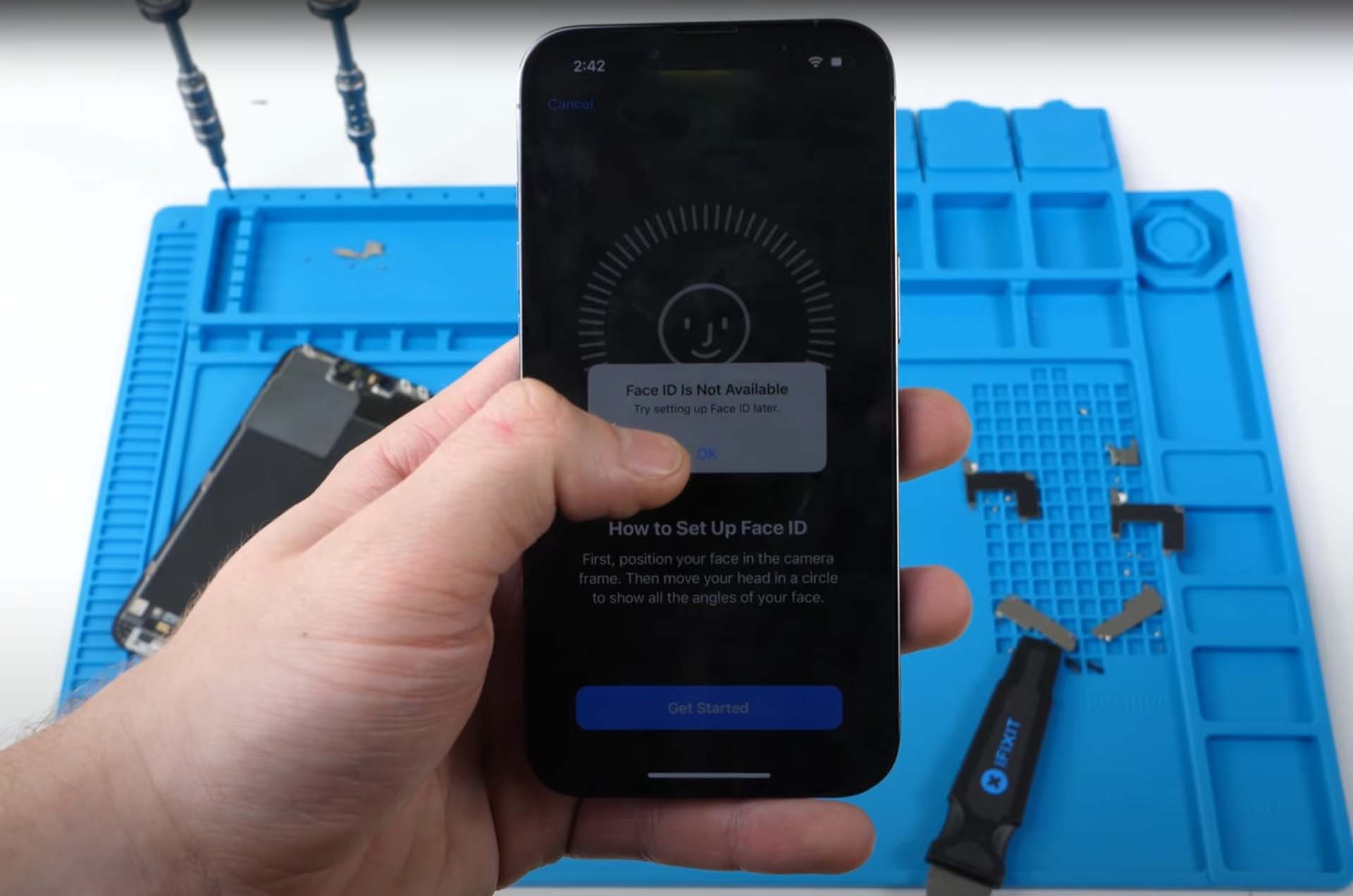
Good news for iPhone users! Apple has officially announced that they will no longer disable Face ID on iPhones when third-party screen repairs are performed. This comes as a relief for many iPhone owners who prefer not to go to authorized Apple service centers for screen replacements.
Previously, if you opted for third-party repairs, there was a possibility that Apple would disable Face ID as a security measure. This decision sparked criticism and frustration from customers who found themselves locked out of their own devices.
With the introduction of the new iPhone 13, Apple has recognized the importance of customer choice and convenience. They have now put an end to the practice of disabling Face ID on iPhones that have undergone third-party screen repairs, ensuring a seamless user experience for all.
Inside This Article
Apple Will Not Disable Face ID on Third-Party iPhone 13 Screen Repairs
Apple has recently made an important decision that will bring relief to many iPhone users. It has been announced that the company will not disable Face ID on third-party iPhone 13 screen repairs. This decision comes as a welcome relief to those who may have concerns about maintaining the full functionality of their Face ID feature after getting their screens repaired by a third-party.
Face ID is one of the most innovative features introduced by Apple in recent years. It provides a secure and convenient way for users to unlock their iPhones, authorize payments, and access various apps and services. The technology uses advanced facial recognition algorithms and a TrueDepth camera system to map the unique contours of a user’s face and match it with the stored facial data to authenticate their identity.
When it comes to screen repairs, some iPhone users have been hesitant to go to third-party repair shops for fear of losing the Face ID functionality. The concern was that Apple may disable Face ID if it detected that the iPhone’s screen had been replaced by a non-authorized service provider. This could have resulted in a reduced user experience and a hassle of having to go to an Apple Store for costly repairs.
However, Apple’s latest decision brings good news to those in need of screen repairs. The company has stated that starting with the iPhone 13 models, it will no longer disable Face ID on devices that have had their screens replaced by third-party providers. This means that users will be able to enjoy the full benefits of Face ID even after getting their screens fixed elsewhere.
This decision by Apple opens up more options for iPhone users when it comes to screen repairs. Instead of being limited to Apple Stores or authorized repair centers, users can now choose to have their screens replaced by skilled technicians at third-party repair shops, without the fear of losing Face ID functionality.
The decision also brings benefits not only to iPhone users but also to the third-party repair industry as a whole. It fosters competition and gives consumers more freedom to choose where they get their screen repairs done. This can potentially lead to more affordable options and faster turnaround times.
With the announcement that Apple will not disable Face ID on third-party iPhone 13 screen repairs, it is a welcome relief for users who rely on these repairs for cost-effective solutions. This move shows that Apple is acknowledging the importance of consumer choice and the need for affordable repairs.
By allowing third-party repairs to keep Face ID functionality intact, Apple addresses a major concern for users who were hesitant to choose non-Apple repair options. This decision reinforces the company’s commitment to providing a seamless user experience, even after the devices have undergone repairs.
Not only does this decision benefit iPhone 13 users, but it also fosters a healthier competitive repair market. Users can now have more options when it comes to screen replacements, without the fear of losing Face ID capabilities.
Overall, Apple’s decision to maintain Face ID functionality on third-party screen repairs further strengthens its position as a user-centric company. It highlights the importance of convenience, affordability, and customer satisfaction, ultimately empowering consumers to make choices that suit their needs and budget.
FAQs
1. Can I repair my iPhone 13 screen at a third-party repair shop without the risk of disabling Face ID?
Yes, you can. Apple has announced that they will not disable Face ID on iPhone 13 devices if the screen is repaired by a third-party repair shop.
2. Are there any specific requirements for third-party repair shops to maintain Face ID functionality after screen repair?
Yes, there are certain requirements that third-party repair shops need to meet in order to maintain Face ID functionality. They should use genuine Apple parts and follow Apple’s repair guidelines to ensure the proper replacement of the screen.
3. What happens if I have my iPhone 13 screen repaired at a non-authorized repair shop?
If you choose to have your iPhone 13 screen repaired at a non-authorized repair shop, there is a risk that Face ID might be disabled. Apple recommends getting repairs done by authorized technicians who use genuine Apple parts to avoid any potential issues.
4. Can I still take my iPhone 13 to an Apple Store for screen repair?
Yes, you can still take your iPhone 13 to an Apple Store for screen repair. Apple Stores have trained technicians who can provide authorized repairs and ensure that Face ID remains functional after the repair.
5. How do I know if a third-party repair shop is authorized by Apple?
To find an authorized third-party repair shop, you can visit Apple’s support website and look for the official list of Authorized Service Providers. These repair shops have the necessary training and authorization from Apple to provide reliable repairs while preserving Face ID functionality.
